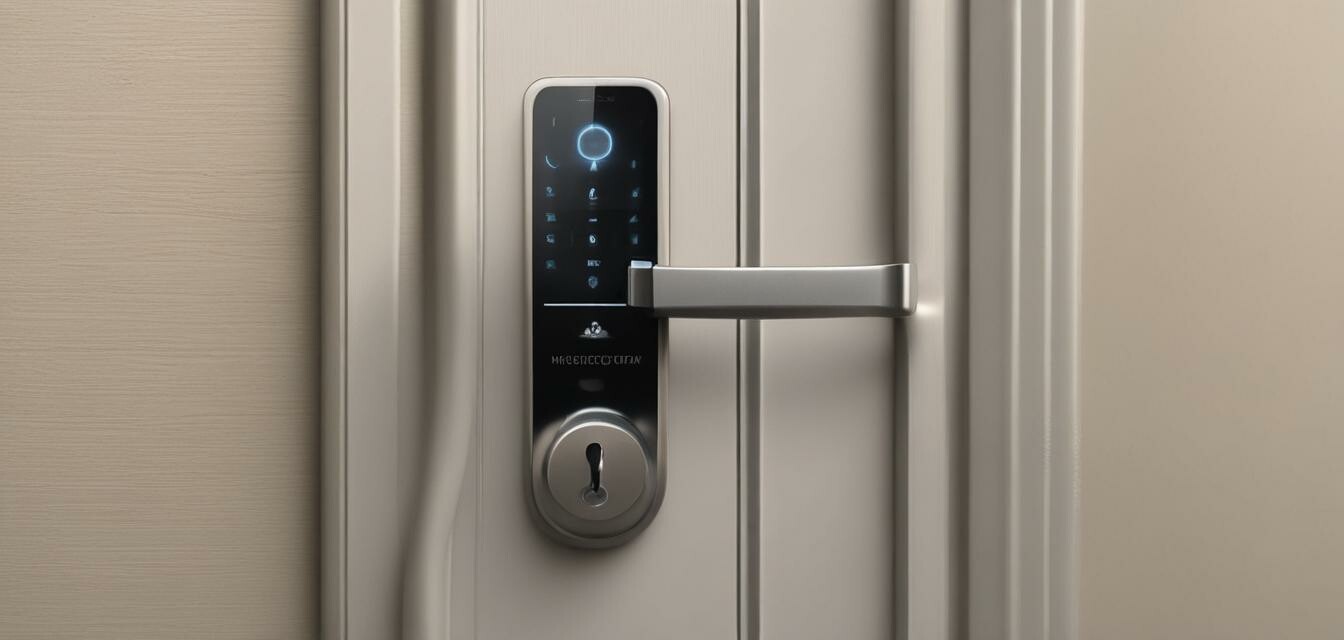
Biometric locks: Are they worth the investment?
Key Takeaways
- Biometric locks offer advanced security through fingerprint or facial recognition technology.
- They eliminate the need for traditional keys, providing convenience for homeowners.
- Investment costs may vary, so evaluating your security needs is essential before purchasing.
- Integration with smart home systems can enhance home security further.
- Regular maintenance and updates are necessary to keep your biometric lock functioning optimally.
As home security technologies continue to evolve, many homeowners find themselves questioning the effectiveness and value of biometric locks. These advanced locking systems use unique biological traits such as fingerprints or facial recognition to enhance security. But are they truly worth the investment? In this article, we will explore the benefits and drawbacks of biometric locks, providing you with the information needed to make an informed decision.
What are biometric locks?
Biometric locks are security devices that utilize biometric data, like fingerprints or retinal patterns, to grant access to authorized users. Unlike traditional locks that rely on physical keys, biometric locks provide a modern solution, making unauthorized access more challenging.
How do biometric locks work?
Biometric locks capture and analyze unique traits of the authorized user. Here’s a breakdown of the basic working mechanism:
- The user registers their biometric data (e.g., fingerprints) into the lock's memory.
- When access is requested, the lock scans the presented biometric.
- The lock compares the scanned biometric data with the stored data for verification.
- If the data matches, the lock disengages, allowing access; otherwise, it remains locked.
Benefits of biometric locks
Biometric locks provide numerous advantages, enhancing home security systems and overall convenience. Here are some key benefits:
- Enhanced security: The uniqueness of individuals’ biometric traits makes it difficult for intruders to bypass security.
- Convenience: No need to carry keys; users can simply use their fingerprint or face to unlock doors.
- Access tracking: Some advanced models allow homeowners to monitor who accessed the lock and when.
- Integration capabilities: Biometric locks can often integrate with smart home systems for a comprehensive security solution.
Drawbacks of biometric locks
While biometric locks offer advanced security, they also come with several drawbacks that potential buyers should consider:
- Cost: Biometric locks can be pricier than traditional locks, leading to a higher upfront investment.
- Potential for malfunctions: Biometric systems may fail under certain conditions, such as dirt on the scanner.
- Privacy concerns: Storing biometric data raises questions about data security and privacy.
- Battery dependency: Most biometric locks rely on batteries, which require regular checks and replacements.
Are biometric locks worth the investment?
The question of worthiness ultimately depends on your individual security needs, budget, and lifestyle. Here are some considerations to help determine if a biometric lock is the right choice for you:
| Aspect | Biometric Locks | Traditional Locks |
|---|---|---|
| Security Level | High | Moderate |
| Convenience | Easy access without keys | Requires physical keys |
| Cost | Higher upfront cost | Generally lower |
| Maintenance | Regular updates and checks needed | Minimal maintenance |
| Installation | May require professional installation | DIY friendly |
Key features to consider
Before purchasing a biometric lock, consider the following key features:
- Security certifications: Look for locks that have been tested and certified by security institutions.
- Biometric recognition technology: Ensure the technology is reliable and has good feedback from users.
- Integration options: If you have a smart home system, consider a lock that can integrate seamlessly.
- Ease of use: Look for user-friendly models that simplify operation and setup.
- Warranty and support: Check for warranties and customer support options in case of malfunctions.
What’s next in security technology?
As technology progresses, we can expect to see further innovations in home security devices. For additional insights on the latest advancements in home security technology, visit our article on Latest security technology trends.
Pros
- Heightened security through biometric identification
- Eliminates the need for physical keys
- Ability to track access history
- Can integrate with other home automation systems
Cons
- Higher initial cost compared to traditional locks
- Reliance on batteries and potential malfunctions
- Concerns about privacy and data security
- May not perform as well in varied environmental conditions
Conclusion
Biometric locks represent a significant advancement in home security technology. While they offer numerous benefits such as enhanced security and convenience, potential drawbacks should not be overlooked. Homeowners must assess their specific needs, budget, and the technical capabilities of biometric locks to determine if they are worth the investment. For those seeking to bolster their home security, integrating biometric locks might just be the right move.
